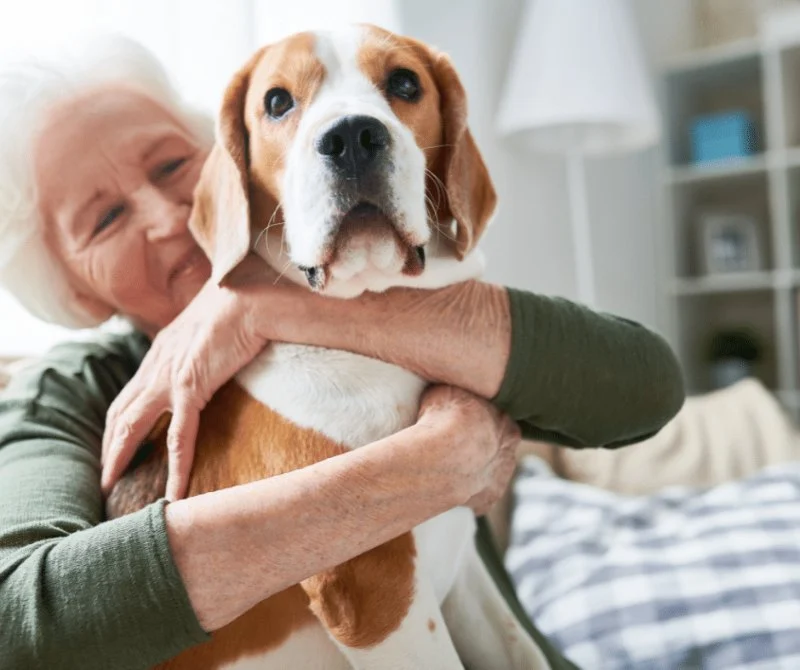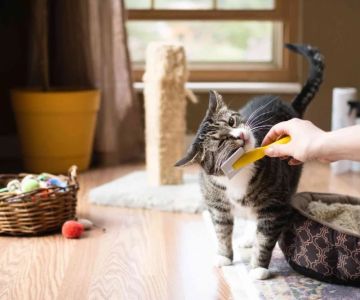
- Why Consider Adopting a Senior Pet?
- 1. The Benefits of Adopting a Senior Pet
- 2. Overcoming the Challenges of Senior Pet Adoption
- 3. Caring for Senior Pets: What to Expect
- 4. Where to Adopt Senior Pets
Why Consider Adopting a Senior Pet?
When most people think about adopting a new pet, they typically picture a playful puppy or kitten. While these young animals can be full of energy and charm, senior pets—those that are 7 years or older—offer their own unique set of advantages. In fact, adopting a senior pet can be a rewarding experience for both the pet and the owner, and it’s a decision that more pet owners are making.
Senior pets are often overlooked in shelters, but they have a wealth of love, loyalty, and wisdom to offer. In this article, we’ll explore the benefits of adopting a senior pet, the challenges involved, and why older pets can make the best companions. Whether you’re thinking of adopting a dog or a cat, understanding the advantages of senior pet adoption can help you make an informed decision.

Washington Boulevard Animal Hospital
WhittierLos Angeles CountyCalifornia
12116 Washington Blvd, Whittier, CA 90606, USA
1. The Benefits of Adopting a Senior Pet
There are numerous benefits to adopting a senior pet, many of which might surprise you. Here are some of the top reasons to consider giving an older pet a second chance:
- Calm Temperament: Senior pets are often already house-trained and have a more relaxed demeanor. Unlike puppies or kittens that require a lot of energy, older pets are typically content with shorter walks, cuddle time, and a slower pace of life.
- Less Destructive Behavior: While puppies and kittens may chew on furniture or get into mischief, senior pets are often more settled and less likely to engage in destructive behaviors. They are typically past the stage of teething and more predictable in their actions.
- Clear Personality: With age, a pet’s personality becomes more defined. This makes it easier to assess whether the pet’s temperament will match your lifestyle. You’ll know if they’re calm, independent, playful, or affectionate before adopting them, which can help ensure a good fit.
- Immediate Companionship: Senior pets often form close bonds with their new owners quickly and are eager for companionship. They don’t require as much training or adjustment as younger pets, making it easier to form a deep connection right away.
- Saving a Life: Senior pets often face higher rates of euthanasia in shelters due to their age. By adopting a senior pet, you’re not only offering them a loving home but also giving them the gift of a longer, more comfortable life.
These benefits make senior pet adoption a wonderful option for pet lovers who may not have the time or energy to raise a puppy or kitten but still want the joy of pet companionship.

Aqua-Rama Pet Center
FayettevilleCumberland CountyNorth Carolina
4929 Bragg Blvd, Fayetteville, NC 28303, USA
2. Overcoming the Challenges of Senior Pet Adoption
While adopting a senior pet can be incredibly rewarding, it’s important to acknowledge that there can be challenges. Here are some common concerns and how to address them:
- Health Issues: Older pets may have existing health issues, such as arthritis, dental disease, or vision problems. However, many of these issues can be managed with the right veterinary care. Before adopting, be sure to ask about the pet’s health history and discuss any ongoing medical needs with your vet.
- Shorter Lifespan: It’s true that senior pets may not live as long as younger ones, but the quality of life they can experience in their remaining years is invaluable. Many senior pets still have plenty of energy and love to give, even if their time with you may be shorter than a puppy’s.
- Emotional Adjustment: Some senior pets may have experienced trauma or loss in their past lives, which can result in emotional difficulties. Patience and understanding are key when helping a senior pet adjust to a new home.
Despite these challenges, adopting a senior pet can be a fulfilling and meaningful experience. With the right preparation and care, these pets can live comfortable, happy lives in your home.
3. Caring for Senior Pets: What to Expect
Caring for a senior pet requires a slightly different approach compared to caring for a younger one. Here are some key aspects to consider when looking after an older pet:
- Regular Vet Visits: Older pets often require more frequent veterinary check-ups to monitor for age-related conditions. Routine blood work, dental exams, and joint care are all important aspects of senior pet care.
- Dietary Needs: Senior pets may have specific dietary needs to support their aging bodies. A high-quality senior pet food with appropriate nutrients can help maintain their weight, support joint health, and promote overall well-being.
- Comfortable Living Spaces: As pets age, they may need extra comfort, such as soft bedding, ramps to avoid jumping, or accessible litter boxes. Creating a comfortable living environment will help them feel more at ease.
- Exercise and Mental Stimulation: While senior pets may not need as much exercise as younger animals, they still benefit from regular, gentle activity and mental stimulation. Interactive toys, short walks, and social interaction can keep them engaged and happy.
By being proactive in addressing these needs, you can ensure that your senior pet enjoys a comfortable, fulfilling life in your home.
4. Where to Adopt Senior Pets
If you’re interested in adopting a senior pet, there are plenty of resources available to help you find the perfect companion. Many animal shelters and rescue organizations have dedicated programs for senior pets, and some even offer discounted adoption fees to encourage their adoption.
In addition to local shelters, websites like Petfinder and Adopt a Pet feature listings of senior pets available for adoption in your area. These organizations can help match you with a pet that fits your lifestyle and needs.
If you’re considering adopting a senior pet, you may want to check out Omnia Pet for the best pet care products, adoption tips, and resources to help you welcome a senior pet into your home.







 Compassion Veterinary Clinic4.0 (83 reviews)
Compassion Veterinary Clinic4.0 (83 reviews) Riverdale Veterinary Group PC4.0 (860 reviews)
Riverdale Veterinary Group PC4.0 (860 reviews) Dr. John J. Etchart, DVM (Horses only)5.0 (4 reviews)
Dr. John J. Etchart, DVM (Horses only)5.0 (4 reviews) ABC Animal Hospital4.0 (146 reviews)
ABC Animal Hospital4.0 (146 reviews) Vetco Vaccination Clinic3.0 (6 reviews)
Vetco Vaccination Clinic3.0 (6 reviews) Petco4.0 (1082 reviews)
Petco4.0 (1082 reviews) The Truth About Essential Oils and Pets: Which Ones Are Dangerous?
The Truth About Essential Oils and Pets: Which Ones Are Dangerous? Understanding Feline Anemia: Causes, Symptoms, and Treatment
Understanding Feline Anemia: Causes, Symptoms, and Treatment Why Do Kittens Like to Chase Their Tails?
Why Do Kittens Like to Chase Their Tails? Best Ways to Keep a Kitten Cool in Summer – U.S. Guide
Best Ways to Keep a Kitten Cool in Summer – U.S. Guide The Science of a Kitten's Digestive System: How It Works and What You Need to Know
The Science of a Kitten's Digestive System: How It Works and What You Need to Know How to Train Your Kitten to Play Dead
How to Train Your Kitten to Play Dead